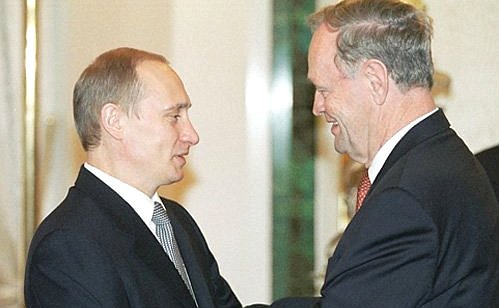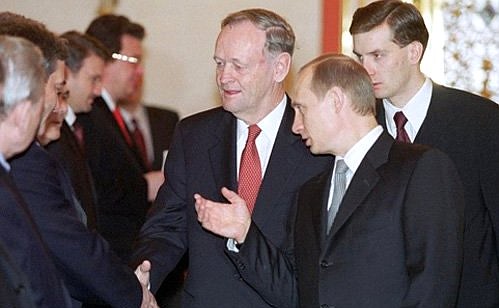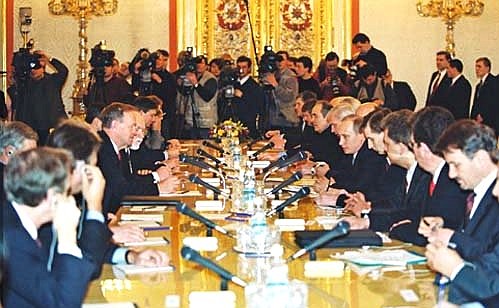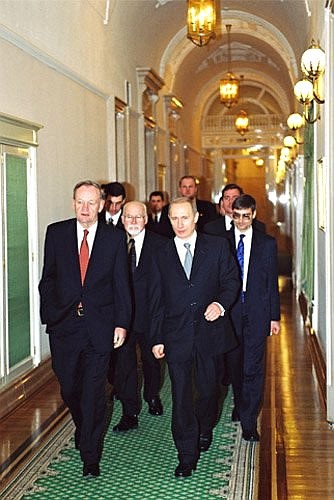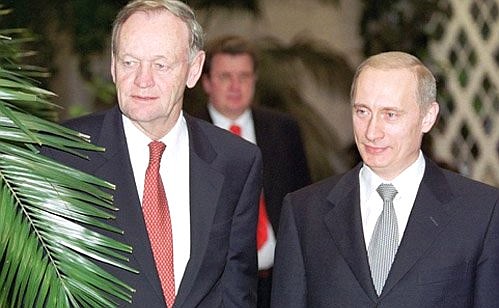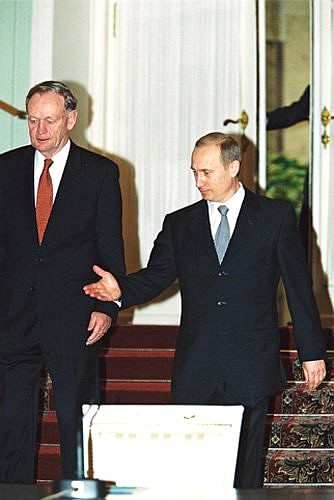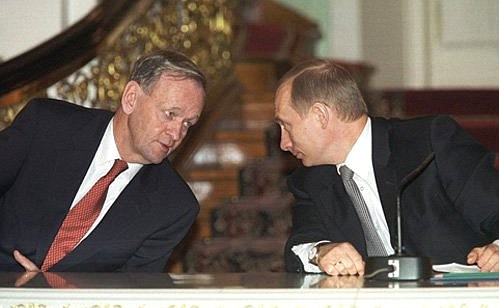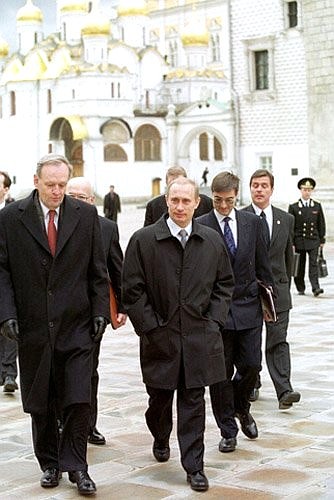Mr Putin and Mr Chretien discussed current aspects of trade, economic, regional and political cooperation. They paid special attention to the coordination of efforts in such forward-looking areas as energy, transport, and high technologies, including telecommunications, aerospace, and information.
Following the negotiations Mr Putin and Mr Chretien signed two documents – a joint action plan to expand cooperation and a joint statement on cooperation in the field of peaceful uses of nuclear energy.
The plan said that Russia and Canada wanted to prevent an arms race in space, and that they would cooperate in the recycling of weapons of mass destruction, the prohibition of biological and chemical weapons, and the implementation of the UN Programme of Action for Small Arms and Light Weapons. The sides said they would continue the dialogue about the Ottawa Convention on the Prohibition of the Use, Stockpiling, Production and Transfer of Anti-Personnel Mines.
Russia and Canada agreed to coordinate their efforts in the fight against terrorism, corruption, organised crime and illicit drug trafficking.
A separate section of the plan was dedicated to economic cooperation. Moscow and Ottawa intended to continue their dialogue on Russia’s WTO entry “on standard conditions”. The document said that the parties were paying particular attention to cooperation in the Arctic and the North.
With regard to cooperation in the nuclear sphere, the sides, as said in the joint statement, intended to expand cooperation in such fields as innovation reactors, nuclear fuel cycles, the handling and recycling of radioactive waste, and uranium enrichment services. Russia and Canada also said they were satisfied with the level of cooperation achieved in the recovery of Russian weapons-grade plutonium.
At the end of the bilateral meetings, Mr Putin and Mr Chretien held a news conference.
